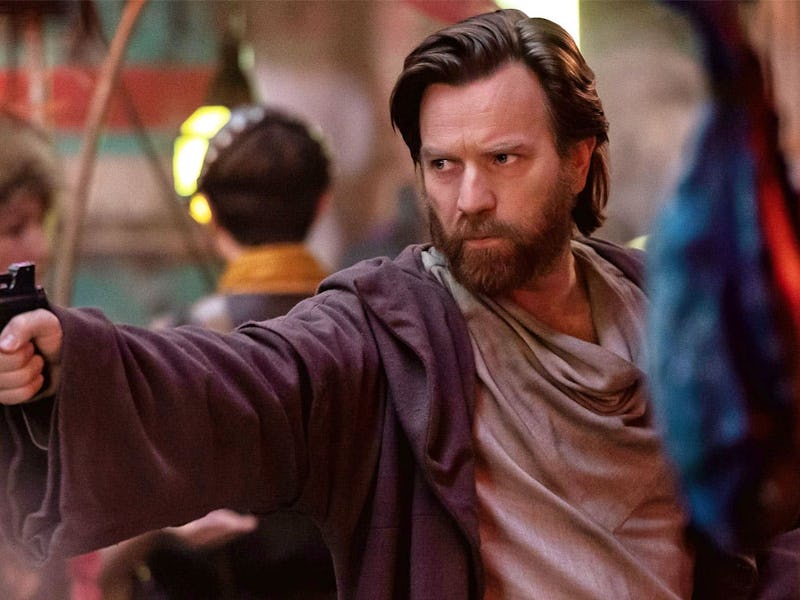Obi-Wan Kenobi Could Have Been Saved With a Radically Different Approach
Why the long face, Obi-Wan?

Before Obi-Wan Kenobi attempted to offer context to the Jedi’s lost years, Star Wars fans were left with little more than guesswork and speculation. What became of Obi-Wan after the Jedi Purge? How did he survive, hidden from his apprentice-turned-Sith, in the wastes of Tatooine? How does someone like Ewan McGregor turn into a white-haired Alec Guinness? Obi-Wan clearly lived a hard life in his self-inflicted exile, but we never really got to see it.
When we catch up with the former Jedi Master in the first moments of Obi-Wan Kenobi, Obi-Wan is making a meager income and living on the outskirts of society. It’s a long fall from the life he was used to. But according to McGregor, who reprised his prequel role for the Disney+ miniseries, his life was once much darker... and probably more interesting.
In an interview with Vanity Fair, McGregor shared some initial ideas for Kenobi, including an alternate opening that would have painted the title hero in a very different light.
“The first episode used to start with me as a waiter in a bar. He’s really lost his way, Obi-Wan,” McGregor said. “He’s drinking too much. I got beaten up. People are kicking me, and I’m just taking it, then stalking out into the night.”
This pitch was one of the first the Kenobi creative team came up with, but for whatever reason, it lost out to a storyline that felt anti-climactic at best.
Obi-Wan Kenobi makes some interesting choices with its title character, but it might have left its best ideas on the cutting room floor.
Obi-Wan certainly doesn’t have it easy in Kenobi’s first episode. He gets a lot of flak from Owen Lars, Luke Skywalker’s guardian. He’s also lost the bravado that made him such a formidable warrior in the prequels. Even when confronted by an ex-Jedi on the run (Benny Safdie), he’d rather bury his head in the sand. “The fight is done,” Kenobi says when asked to join the rebellion. “We lost.”
The issues holding Obi-Wan back are largely mental and psychological, and for good reason. He witnessed the demise of everything he’d dedicated his life to, and he couldn’t stop his apprentice, Anakin, from turning to the dark side. That said, we really don’t get a physical manifestation of his emotions.
Reintroducing the character as a defeated alcoholic certainly would have established a changed Obi-Wan, especially since he was often comically opposed to substance abuse in the prequels. It also would have made Obi-Wan’s comeback that much more compelling to watch, particularly when he has to face off against Darth Vader at the height of his powers.
Kenobi’s quest for redemption was an uphill battle, but his latest adventure didn’t go quite far enough.
Obi-Wan would have had to fight back against more than his survivor’s guilt and fear. While psychological hurdles are formidable, introducing a physical hurdle would have upped the stakes and added a bit of maturity to an otherwise tame adventure. He didn’t need to become an addled burnout more reminiscent of McGregor’s Trainspotting days, but the show needed something to make itself stand out.
One of the biggest problems plaguing Kenobi was its reliance on nostalgia. It had the chance to deliver a radical new take on Star Wars’ oldest characters, but it pulled its punches more often than not. Adding insult to injury is the fact the creative team apparently had better ideas than the story we got. It’s a bit too late to redeem the series, but hopefully, future Star Wars projects won’t be afraid to take proper risks with the franchise’s legacy characters.